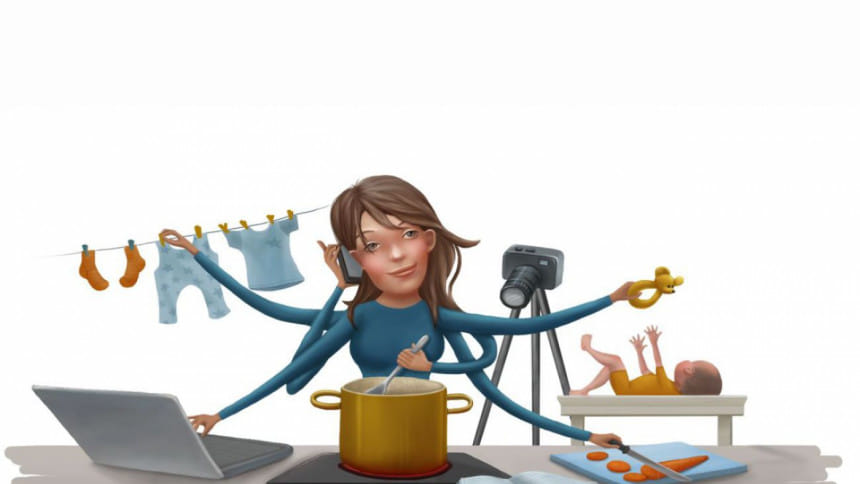Stop shaming stay-at-home women

The importance of women having financial independence cannot be overstated. It is the number one reason women stay in an abusive relationship as they would not be able to support themselves or their children outside of it. As a working woman myself, I am earnest in my efforts in encouraging other women to earn and manage their own money. At the same time, there is a difference between encouraging women to work and shaming them if they choose not to.
I see women being called lazy, being a burden or having wasted their education if they do not work. While any of those descriptions can be true for an individual (women and men), it cannot be used to broad-brush an extremely complex socio-economic phenomenon.
Societal expectations
In Bangladesh, a woman is expected to do academically well. However, as soon as she nears graduation most families will prioritise her marriage while her male peers will prioritise landing a first job. Women are not easily allowed to leave the parental home for work. She is expected to follow around her spouse for his career thus making it hard to build her own. We raise our girls to prioritise family for 20+ years but suddenly expect them to behave differently when trends change.
No one is doing the dishes
A married woman will work equal hours as her male peers and then return home to take care of the household. In addition to caring for children, women are also expected to take care of aging parents on both sides. Not to mention, there are families whose children may have special needs. To shame such a mother as being "lazy" or "wasting her education" is cruel.
Economics
When a child comes into the picture, costs go up significantly for a family. Hire extra help, shuttle the children back and forth between family members, and—for those who can afford it all—the cost of day care. These costs may eat up a significant portion of what a woman may be earning. She may end up quitting her job because it just doesn't make economic sense to work.
Lack of flexibility
Our workplaces were designed by men for men who had a stay-at-home wife to take care of the home. In that world, we are trying to fit the needs of women who do not have a husband at home to cook dinner and certainly cannot birth and nurse babies. Flexibility is one of the things that helps retain women at work — hours, location, maternity leave. Workplaces are barely catching up with the need to ensure maternity leave let alone flexible working hours.
Discouraging men to do their share
Shaming caregiving as a cop-out discourages men from being involved in it. If anything, we need to reverse the narrative. We need to elevate caregiving to the prestige of "working in an office" so that men want to devote hours to the family instead of their corporate overlords.
I am a working woman and I recognise all the privilege that allows me to be one. I was raised by a family where most women worked thus it wasn't difficult for me to imagine a career of my own. No one pressured me to get married. With a young daughter, my husband and I rely heavily on both sets of grandparents to look after her. We have the financial means to hire extra help as needed. Most women do not have these privileges. Those who preach hopefully will pause to check their own privilege before telling a woman that she needs to go out and work.
It seems, as a woman you are damned if you do and damned if you don't.
Shammi Quddus is a recent graduate of the Stanford Graduate School of Business and Harvard Kennedy School. She is currently working at Google in Sunnyvale, California.










Comments